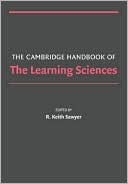Category Books
- Fiction Books & Literature
- Graphic Novels
- Horror
- Mystery & Crime
- Poetry
- Romance Books
- Science Fiction & Fantasy
- Thrillers
- Westerns
- Ages 0-2
- Ages 3-5
- Ages 6-8
- Ages 9-12
- Teens
- Children's Books
- African Americans
- Antiques & Collectibles
- Art, Architecture & Photography
- Bibles & Bible Studies
- Biography
- Business Books
- Christianity
- Computer Books & Technology Books
- Cookbooks, Food & Wine
- Crafts & Hobbies Books
- Education & Teaching
- Engineering
- Entertainment
- Foreign Languages
- Game Books
- Gay & Lesbian
- Health Books, Diet & Fitness Books
- History
- Home & Garden
- Humor Books
- Judaism & Judaica
- Law
- Medical Books
- New Age & Spirituality
- Nonfiction
- Parenting & Family
- Pets
- Philosophy
- Political Books & Current Events Books
- Psychology & Psychotherapy
- Reference
- Religion Books
- Science & Nature
- Self Improvement
- Sex & Relationships
- Social Sciences
- Sports & Adventure
- Study Guides & Test Prep
- Travel
- True Crime
- Weddings
- Women's Studies
The Cambridge Handbook of the Learning Sciences » (1st Edition)

Authors: R. Keith Sawyer
ISBN-13: 9780521607773, ISBN-10: 0521607779
Format: Paperback
Publisher: Cambridge University Press
Date Published: March 2006
Edition: 1st Edition
Author Biography: R. Keith Sawyer
R. Keith Sawyer is Associate Professor of Education at Washington University in St. Louis. He received his Ph.D. in Psychology at the University of Chicago and his S.B. in Computer Science at the Massachusetts Institute of Technology. He studies creativity, collaboration, and learning. Dr. Sawyer has written or edited 8 books. His most recent book is Explaining Creativity: The Science of Human Innovation (in press, Oxford).
Book Synopsis
This shows how educators can use the learning sciences to design more effective learning environments.
Table of Contents
Preface R. Keith Sawyer;
1. Introduction: the new science of learning R. Keith Sawyer;
Part I. Foundations:
2. Foundations and opportunities for an interdisciplinary science of learning John Bransford, Brigid Barron, Roy Pea, Andrew Meltzoff, Pat Kuhl, Phil Bell, Reed Stevens, Daniel Schwartz, Nancy Vye, Byron Reeves, Jeremy Roschelle and Nora H. Sabelli;
3. Constructionism Yasmin B. Kafai;
4. Cognitive apprenticeship Allan Collins;
5. Cognitive tutors: technology bringing learning sciences to the classroom Kenneth R. Koedinger and Albert Corbett;
6. Learning in activity James G. Greeno;
7. Knowledge building: theory, pedagogy, and technology Marlene Scardamalia and Carl Bereiter;
Part II. Methodologies:
8. Learner-centered design: reflections on the past and directions for the future Chris Quintana, Namsoo Shin, Cathleen Norris, and Elliot Soloway;
9. The evolution of design studies as methodology Jere Confrey;
10. Design-based research: a methodological toolkit for the learning scientist Sasha Barab;
11. Guiding inquiry-based math learning Paul Cobb and Kay McClain;
12. Analyzing collaborative discourse R. Keith Sawyer;
13. Assessing for deep understanding Sharon M. Carver;
Part III. The Nature of Knowledge:
14. Case-based reasoning Janet L. Kolodner;
15. The knowledge integration perspective on learning and instruction Marcia C. Linn;
16. A history of conceptual change research: threads and fault lines Andrea A. diSessa;
17. Spatial representations and imagery in learning Daniel L. Schwartz and Julie Heiser;
18. Literacy and the learning sciences Annemarie Palincsarand Barbara G. Ladewski;
Part IV. Making Knowledge Visible:
19. Project-based learning Joseph S. Krajcik and Phyllis Blumenfeld;
20. Making authentic practices accessible to learners: design challenges and strategies Daniel C. Edelson and Brian J. Reiser;
21. BioKIDS: an animated conversation on the development of curricular activity structures for inquiry science Nancy Butler Songer;
22. Cultivating model-based reasoning in science education Richard Lehrer and Leona Schauble;
23. Exploring mathematics through construction and collaboration Richard Noss and Celia Hoyles;
Part V. Learning Together:
24. Computer-supported collaborative learning Gerry Stahl, Timothy Koschmann, and Daniel D. Suthers;
25. WILD for learning: interacting through new computing devices anytime, anywhere Roy D. Pea and Heidy Maldonado;
26. Arguing to learn Jerry Andriessen;
27. Learning in online communities Amy Bruckman;
Part VI. Learning Environments:
28. Motivation and cognitive engagement in learning environments Phyllis C. Blumenfeld, Toni M. Kempler and Joseph S. Krajcik;
29. Learning as a cultural process: achieving equity through diversity Na'ilah Suad Nasir, Ann S. Rosebery, Beth Warren and Carol D. Lee;
30. Prospects for transforming schools with technology-supported assessment Barbara Means;
31. Internet use in schools: promise and problems Janet Ward Schofield;
32. Teacher learning research and the learning sciences Barry J. Fishman and Elizabeth A. Davis;
33. Scaling up: evolving innovations beyond deal settings to challenging contexts of practice Christopher Dede;
34. Conclusion: the schools of the future R. Keith Sawyer; Afterword: after how comes what Seymour Papert; Epilogue: the fundamental issue in the learning sciences Roger C. Schank.
Subjects
 Educational Theory, Research & History
Educational Theory, Research & History  Psychology of Education
Psychology of EducationEducation & Teaching
 Learning
Learning  Cognitive learning
Cognitive learningEducation & Teaching
 Social & Political Aspects of Education
Social & Political Aspects of Education  Education - Philosophy & Social Aspects
Education - Philosophy & Social AspectsNonfiction
 Psychology
Psychology  Psychology - Theory, History & Research
Psychology - Theory, History & ResearchNonfiction
 All Nonfiction
All Nonfiction  Education - General & Miscellaneous
Education - General & MiscellaneousNonfiction
 All Nonfiction
All Nonfiction  Education - Social & Political Aspects
Education - Social & Political AspectsPsychology & Psychotherapy
 Psychology - Theory, History & Research
Psychology - Theory, History & Research  Cognitive Psychology
Cognitive PsychologyPsychology & Psychotherapy
 Psychology - Theory, History & Research
Psychology - Theory, History & Research  Educational Psychology
Educational PsychologyScience & Nature
 All Science & Nature
All Science & Nature  Science - General & Miscellaneous
Science - General & MiscellaneousMedical Books
 Psychology & Psychotherapy
Psychology & Psychotherapy  Psychology - Theory, History & Research
Psychology - Theory, History & ResearchNonfiction
 Science & Nature
Science & Nature  All Science & Nature
All Science & Nature
